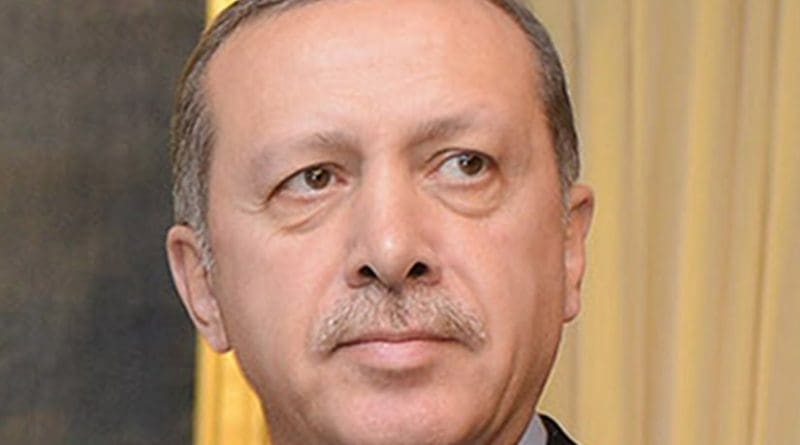Turn Back To The 90s? Turkish Domestic Policy From Perspective Of The West – OpEd
By JTW
By Kenan Engin*
After AKP (the Justice and Development Party) came to power with the promise of “reconciliation of the Kurdish issue“, Turkey experienced a certain political and economic stability – until 2012. The government of AKP launched the “solution process,” and this process has been showcased by AKP in the Turkish media as proof of its reformist identity and ambitions. Furthermore, AKP’s references to democratization, free markets, European Union membership and the defense of traditional values have strengthened its backing among large segments of the people and among Turkey’s intellectuals.
Following the 2011 election of Recep Tayyip Erdoğan, AKP pulled back from pursuing these reformist ambitions. Instead, AKP has tried to consolidate its position as the custodian of the Erdoğan government, and has taken an anti-EU-membership position. Particularly after the Gezi Protests in 2013 AKP adopted a tendency towards an anti-western position and accused every single critical voice of being a mouthpiece for the western “lobby of interest,” creating a conspiracy-based discourse. This policy reached its all-time high after the election on the 7th of June 2015. Since the election, there have been attacks at the headquarters of the newspaper the Hurriyet and on the pro-Kurdish HDP and there have also been curfews instituted in different cities. Turkey has once again entered a vicious cycle of domestic suspicion and violence, echoing the conflicts of the 1990s.
The escalation of political tension in Turkey has stirred up reactions across a wide spectrum among high-level western political representatives and western media. The majority of western media consider domestic political interests to be the driving force in the escalating political tension. Having lost the absolute majority during the last elections mainly due to the newly founded Peoples Democratic Party (HDP), Erdoğan has since been laying the groundwork for new elections in order to regain the absolute majority. According to diverse media, the harsh reaction of the Turkish government is an attempt to brand HDP as a “terrorist party,” thereby weakening its influence. At the same time, Erdoğan seeks to absorb the votes of the Nationalist Movement Party (MHP).
Needless to say, the western media is also not homogeneous. Whereas some, such as the British The Independent, are highlighting Turkey’s right to self-defense against the Kurdistan Workers’ Party (PKK) attacks, the majority of media report on the human rights violations by state security forces.
Comparatively, western diplomatic and political circles are more careful than western media when it comes to a critical approach to the Turkish government. Recently, Angela Merkel, the German Chancellor, and Jens Stoltenberg, the Secretary General of NATO, argued for solidarity with Turkey in the fight against terrorism, but at the same time emphasized the continuation of the Kurdish problem “peace process” and a proportional approach to the demonstrations. The final declaration of the NATO summit generated some controversy when it issued a statement in “strong solidarity” with Turkey, but failed to mention the restrictions, air strikes against Kurdish targets who are also fighting against the Islamic State (IS), and so on.
This is why some western media see NATO’s support as a blank check for the Turkish government. Among NATO allies, the USA has a slightly different view than the Europeans. America also supports Turkey´s right to self-defense, but at the same time urges cooperation with the People’s Protection Units (YPG), which is seen by Turkey as an offshoot of the PKK. Also, regarding the waves of attacks on the Hurriyet and HDP local branches, the US State Department’s spokesperson John Kirby has taken a clear position: “We’re concerned by reports that the protests against the Hurriyet Daily were encouraged by members of the Justice and Development Party. Elected officials must be careful not to appear to encourage violence against media outlets.”
In conclusion, tensions in Turkey are being closely observed by western media and political representatives. They are underscoring Turkey’s right to self-defense and clearly condemning the attacks on the media and those not allied with Erdoğan’s government, but also the west is stressing the importance of preserving democratic values. As European Union Council President Donald Tusk points out, “When we discussed the terrorist threat…, I also stressed how important it is to get the Kurdish peace process back on track.” The peace process cannot succeed in a climate of domestic intimidation in Turkey.
(The author thanks Carolin Rüber for her very helpful comments and research assistance.)
*Lecturer at the University of Applied Science Mainz

